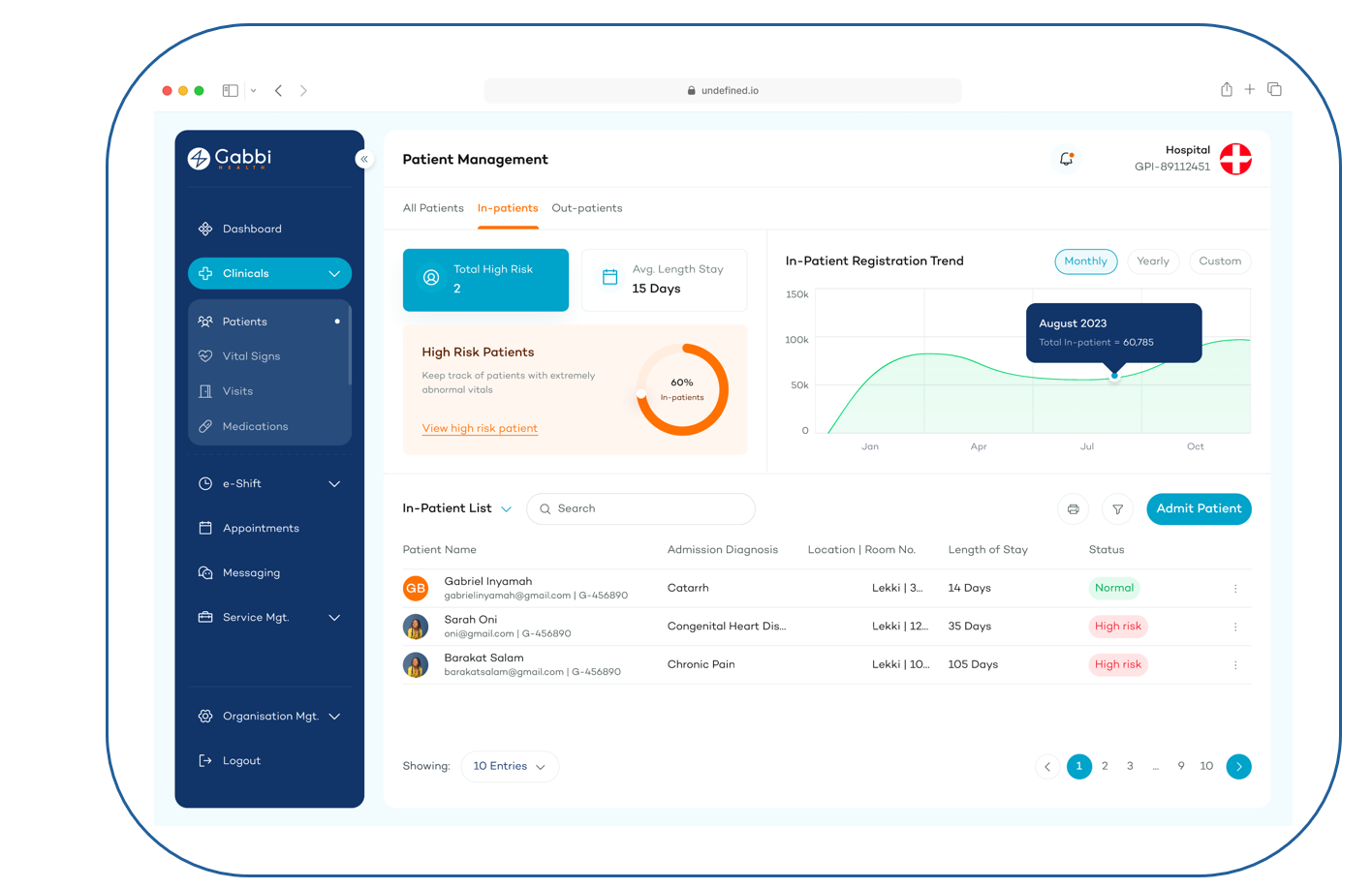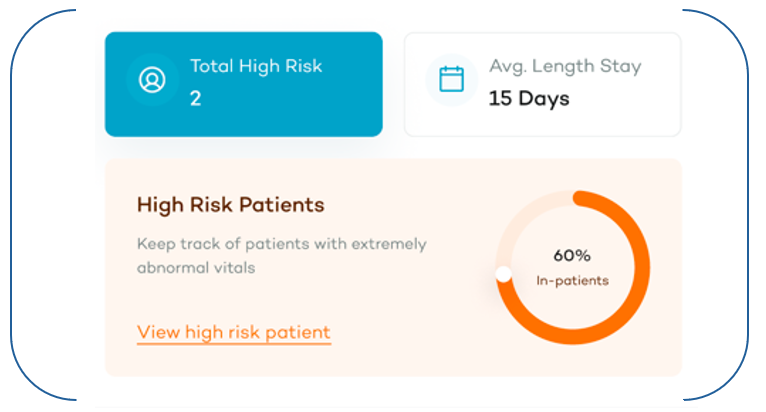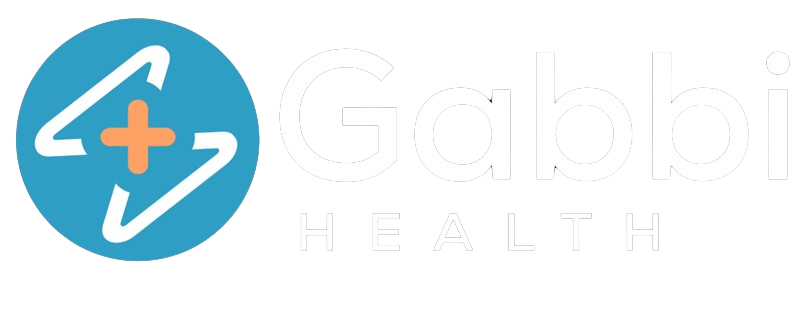Predictive Analytics
Healthcare predictive analytics leverages the power of data and artificial intelligence (AI) to make informed predictions about future health outcomes. It's like peering into a crystal ball, but instead of gazing at swirling mist, we're analyzing vast amounts of healthcare data to identify patterns and trends that hold the key to personalized, preventive, and ultimately, better healthcare. Gabbi Health's digital platform is equipped with predictive analytics to enable:
- Early Disease Detection
- Personalized Medicine
- Improved Public Health
- Reduced Healthcare Costs



Gabbi MyHealth App Puts Your Health At Your Finger Tips


Identify Patients At Risk
By utilizing predictive analytics alongside other clinical parameters, healthcare professionals can better prioritize care based on individual patient risk. It’s like sorting patients on a spectrum of vulnerability, ensuring those most at risk get the attention they need first.
- Early identification of hemodynamic instability: A high risk designation often precedes the development of hypotension, a hallmark of shock, allowing for earlier intervention and potentially improved outcomes.
- Predict adverse events: Reduce the risk of complications like massive transfusion requirement, need for invasive procedures, and even mortality in patients with trauma, sepsis, and other critical illnesses.
Clinical Decision Support
Predictive Analytics as a Powerful Ally in Clinical Decision Support
- Clinical decision support (CDS) has long been a cornerstone of good medical practice, providing healthcare professionals with guidance and information at the point of care. But in recent years, predictive analytics has emerged as a game-changer, adding a powerful new layer of insight to CDS tools.
- Predictive analytics is not just another tool in the CDS toolbox; it's a paradigm shift. By harnessing the power of data and AI, we can move from reactive to proactive healthcare, making informed decisions that improve patient outcomes and pave the way for a healthier future.



- Improved Diagnostic Accuracy: CDSTs can analyze patient data and suggest potential diagnoses, helping clinicians rule out less likely causes and arrive at a more accurate diagnosis faster. This can lead to quicker initiation of appropriate treatment and better patient outcomes.
- Enhanced Treatment Recommendations: CDSTs can suggest evidence-based treatment options based on the patient's individual characteristics and condition, guiding clinicians towards personalized and effective care plans. This can ensure patients receive the most appropriate treatment while minimizing potential risks or side effects.
- Stay Informed of Guidelines and Best Practices: CDSTs can integrate the latest clinical guidelines and best practices into the workflow, ensuring clinicians have access to the most up-to-date evidence at the point of care. This can help them stay informed and deliver evidence-based care.
